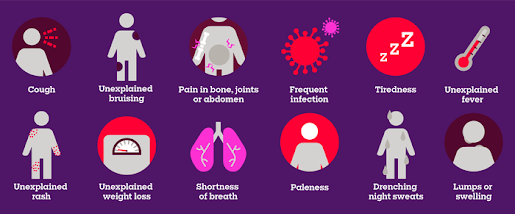Dealing with cancer is an immense challenge that affects not only the physical well-being of an individual but also takes a toll on their emotional and mental health. Among the myriad challenges faced by cancer patients, pain is a significant and often complex aspect that requires specialized attention. In this comprehensive guide, we will delve into the various types of cancer pain and explore how Ancure Clinic is committed to providing effective solutions and compassionate care.
Cancer pain is a multifaceted experience that can manifest in different ways. It may be acute or chronic, dull or sharp, and can range from mild discomfort to severe agony. The type of pain a patient experiences is influenced by factors such as the type and stage of cancer, the individual's pain tolerance, and the effectiveness of their pain management plan.
Types of Cancer Pain:
Nociceptive Pain:
- Resulting from tissue damage or inflammation, nociceptive pain is a common type of cancer pain. It can be further divided into somatic pain (arising from the skin, muscles, or bones) and visceral pain (stemming from internal organs).
Neuropathic Pain:
- Caused by nerve damage or dysfunction, neuropathic pain is characterized by sensations like burning, tingling, or shooting pain. It often occurs as a side effect of cancer treatments like chemotherapy or due to the tumor pressing on nerves.
Bone Pain:
- Many cancer patients experience pain in their bones, especially if the cancer has spread to the skeletal system. This pain can be intense and requires specialised management.
Phantom Limb Pain:
- Some cancer survivors, particularly those who have undergone amputations as part of their treatment, may experience phantom limb pain. This refers to the perception of pain in a limb that is no longer present.
Referred Pain:
- Cancer can cause pain in areas away from the actual tumour site, known as referred pain. Understanding and effectively managing referred pain is crucial for improving the patient's overall quality of life.
Ancure Clinic's Approach to Cancer Pain Management:
Ancure Clinic is at the forefront of providing comprehensive and patient-centered care for individuals dealing with cancer pain. The clinic adopts a multidisciplinary approach, involving a team of experienced oncologists, pain management specialists, nurses, and counsellors to address the diverse aspects of pain.
Key Features of Ancure Clinic's Pain Management Program:
Personalised Treatment Plans:
- Ancure Clinic recognises that each patient's experience with cancer pain is unique. Therefore, the clinic tailors treatment plans to individual needs, considering factors such as the type and stage of cancer, pain intensity, and the patient's overall health.
Medication Management:
- Employing a range of medications, including analgesics, anti-inflammatory drugs, and neuropathic pain medications, Ancure Clinic aims to alleviate pain while minimizing side effects. Opioid medications are prescribed judiciously and in accordance with established guidelines to ensure patient safety.
Interventional Procedures:
- Ancure Clinic offers advanced interventional procedures to manage pain, such as nerve blocks, epidural injections, and radiofrequency ablation. These procedures target specific pain pathways, providing relief to patients with localized pain.
Physical and Integrative Therapies:
- Complementary therapies, such as physical therapy, acupuncture, and relaxation techniques, are integrated into Ancure Clinic's approach to enhance pain management. These therapies not only alleviate physical pain but also contribute to the emotional and mental well-being of patients.
Psychosocial Support:
- Recognizing the emotional toll of cancer pain, Ancure Clinic emphasizes psychosocial support. Counsellors and support groups are available to help patients cope with the psychological impact of pain, offering a holistic approach to well-being.
Conclusion:
Cancer pain is a complex and challenging aspect of the cancer journey, but with the right approach and comprehensive care, it can be effectively managed. Ancure Clinic's commitment to personalized and multidisciplinary care ensures that patients receive the support they need to navigate the challenges of cancer pain with resilience and hope. By understanding the various types of cancer pain and exploring innovative solutions, Ancure Clinic stands as a beacon of compassion and expertise in the realm of cancer care.



No comments:
Post a Comment